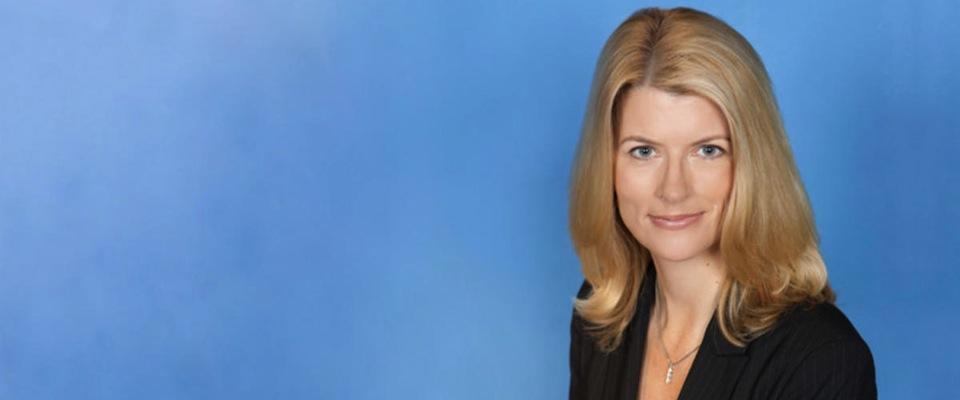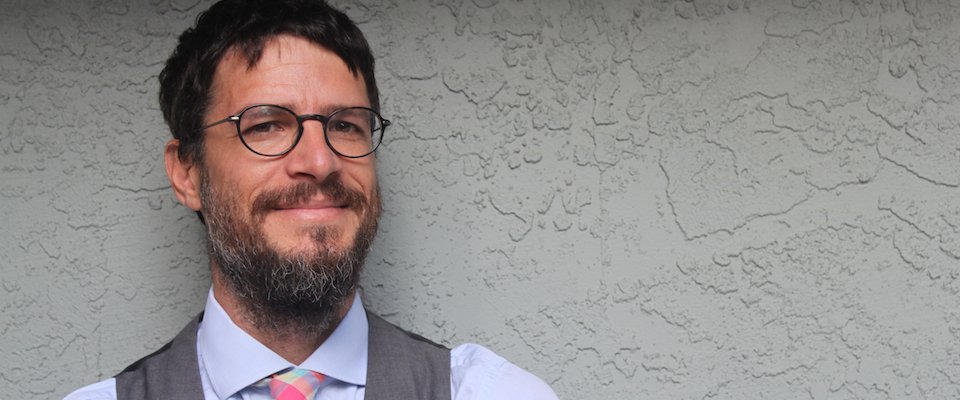In 1999, in one of the biggest media divorces of Bay Area history, NBC severed its 50-year affiliation with San Francisco station KRON and signed with a relatively unknown station in San Jose called KNTV, which changed its name to NBC Bay Area.
As the new kid on the block, NBC Bay Area needed some credibility fast. So it raided the premier newsroom of the Bay Area, KTVU, and hired away their most promising young reporter, Diane Dwyer who graduated from Cal in 1987, as a reporter and weekend anchor. (She insisted on weekends because she wanted her weekday evenings free to be with her two young children.) Presto! Instant credibility.
“The only downside was that I never got to see the Big Game after the first quarter because I’d have to go to work,” she says. “My husband Tim is a Stanford grad, so he would sit with me and the children on the Cal side of the field for the first quarter until I left, then he’d take them over to the Stanford side and mess with their brains.”
For the last 24 years—first at KTVU, then at NBC Bay Area—Diane has covered every major story in the Bay Area, including the Asiana Airlines crash at San Francisco Airport on July 6, 2013, when she was able to debunk initial reports that 70 missing passengers were dead.
“I had the coroner’s cell phone number on my phone, and I have known him since my first days at KTVU in 1990. So I called him up, and he answered while he was standing on the tarmac. He told me, ‘They may be unaccounted for, but we have cleared the plane, and there are no other bodies on the plane.’ So we were able to get that information out very quickly.”
Then there was the interview with Attorney General Janet Reno, who turned out to be camera phobic for good reason. It began well.
“She couldn’t have been more charming. She was really open and thoughtful. After we finished the interview, I told the producer, ‘I have a totally different side of Janet Reno that people have never seen before.’ I was so thrilled coming back to the studio. I was sure I had a story nobody else had.
“Then we put the tape in the machine, and there was the same awkward Janet Reno you always saw on TV. The words were the same, but she just didn’t translate through the lens.”
The funny thing is that Diane never set out to be a broadcast journalist.
“It’s all because of a public speaking class I took at the Haas Business School. I was terrified of public speaking, but it was a requirement for my major.” She still remembers being assigned to make an impromptu speech about milk. “I talked about how milk is good for you, made a couple of jokes, and people laughed. And I loved it!”
Alas for news junkies, on June 8 Diane made her last regular broadcast as anchor/reporter. But she isn’t leaving TV news completely. She has agreed to do special 30-minute documentaries for NBC Bay Area. The first, about the 50th anniversary of the Free Speech Movement, aired in September (you can watch it on YouTube).
“It’s the best of both worlds,” she says. “I get to spend more time with my family and still do the special projects I love.”
The arrangement also enables her to work as a marketing consultant and continue teaching at UC Berkeley’s Haas school, where her Media Consulting and Design Thinking class has been one of the most popular on campus since 2006. In teacher evaluations for the last two years, students have given her a perfect 7-out-of-7 median score in the “teaching effectiveness of the instructor” category—a rating achieved by only a handful of faculty members.
“After the first day of class, I called my mom and told her I was pretty sure this was going to be my favorite class at Cal,” says Katie Bruzzone, who graduated this year. “We knew we were her priority, not only in class but outside class, too. When you know your teacher has your back and wants only the best for you, it makes you work even harder.”
“She taught us a lot more than just the five Ws,” adds Andrea Perez, who also graduated this year. “Thanks to what I learned in her class, I was able to create a successful social media campaign and video to raise awareness about the issues in my native country of Venezuela. The video gained over 10,000 views in a few days, and that wouldn’t have been possible without Diane’s support.
“As soon as I started this campaign, I got in touch with her to get her advice about how to reach traditional media. The TV stations were scared to tackle the crisis in Venezuela. They didn’t know if the story was real or not because it was from social media. So Diane said, ‘Let me see what I can do.’ And in a few days, a crew from NBC Bay Area was there!”
Diane has won more accolades than there is room to list, including two Emmys, two awards from the Society of Professional Journalists, a New York Festivals award, and numerous recognitions for her untiring pro bono work for nonprofit organizations.
“She was always willing to donate her time, which I thought was really cool, because we’d reach out to other local news anchors and celebrities but rarely got a reply,” says Mike Murray, executive director of Golden Gate German Shepherd Rescue. “Diane was on the other extreme, always asking, ‘Is there anything I can do for you?’”
She also has the dubious distinction of being mocked by Stephen Colbert.
“I got a voicemail from a friend saying, ‘OMG! You were just on The Colbert Report!’ Colbert does a very good job of not getting that show online until it runs in Pacific Time, so I spent the next three hours sick to my stomach, wondering what I did that was that stupid. As it turns out, it was completely innocuous,” she recalls. “He mocked the law, not our coverage.”
And she’s not ready to write an obituary for TV news just yet.
“It’s going to continue to change in ways we can’t imagine. We used to have people operating the cameras in the studio, and now that’s done by robots. But news is storytelling, and we’re the ones who tell the stories. So much of the newsroom can be automated, but it’s hard to imagine there won’t be any storytellers.”
Reach Martin Snapp at catman@sunset.net.
From the Winter 2014 Gender Assumptions issue of California.





















